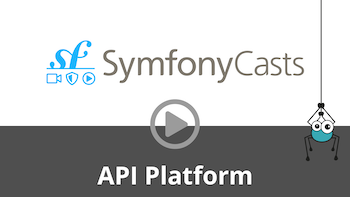DebuggingTable of Contents
Table of Contents

Watch the Debugging API Platform screencast
# Xdebug
The default Docker stack is shipped without a Xdebug stage. It’s easy though to add Xdebug to your project, for development purposes such as debugging tests or remote API requests.
# Add a Development Stage to the Dockerfile
To avoid deploying API Platform to production with an active Xdebug extension,
it’s recommended to add a custom stage to the end of the api/Dockerfile.
# api/Dockerfile
FROM api_platform_php as api_platform_php_dev
ARG XDEBUG_VERSION=3.0.2
RUN set -eux; \
apk add --no-cache --virtual .build-deps $PHPIZE_DEPS; \
pecl install xdebug-$XDEBUG_VERSION; \
docker-php-ext-enable xdebug; \
apk del .build-deps# Configure Xdebug with Docker Compose Override
Using an override file named
docker-compose.override.yml ensures that the production configuration remains untouched.
As an example, an override could look like this:
version: "3.4"
services:
php:
build:
target: api_platform_php_dev
environment:
# See https://docs.docker.com/docker-for-mac/networking/#i-want-to-connect-from-a-container-to-a-service-on-the-host
# See https://github.com/docker/for-linux/issues/264
# The `remote_host` below may optionally be replaced with `remote_connect_back`
XDEBUG_CONFIG: >-
remote_enable=1
remote_host=host.docker.internal
remote_connect_back=1
remote_port=9000
idekey=PHPSTORM
# This should correspond to the server declared in PHPStorm `Preferences | Languages & Frameworks | PHP | Servers`
# Then PHPStorm will use the corresponding path mappings
PHP_IDE_CONFIG: serverName=api-platformNote for Mac environments use the following:
XDEBUG_CONFIG: >-
remote_enable=1
remote_host=docker.for.mac.localhost
remote_connect_back=0
remote_port=9000
idekey=PHPSTORM
remote_autostart=1
remote_mode=req
remote_handler=dbgp # Troubleshooting
Inspect the installation with the following command. The requested Xdebug version should be displayed in the output.
$ docker-compose exec php php --version
PHP …
with Xdebug v3.0.2, Copyright (c) 2002-2021, by Derick Rethans
…
You can also help us improve the documentation of this page.
